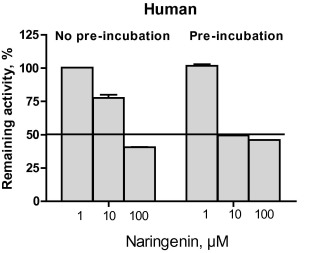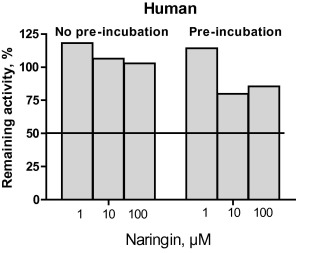Is anyone aware of an interaction between rapamycin and statins (eg rosuvastatin) ? Can you be on both at the same time?
Its based on the half-life of the drug, and amount of enzyme inhibition… You should look up the specific drugs you are interested in, but i suspect minimal impact after 24 hours.
I don’t think any issues between Rapamycin and statins alone… The risks start when you mix them with grapefruit juice and similarly acting compounds.
Check drug interactions here
Also depends on which statin: Grapefruit juice and statins - Harvard Health
Doesn’t much matter for rosuvastatin (Crestor), which is probably the one everyone should be on, or at least try first to see if they tolerate, since it’s hydrophilic so it both is more hepato-selective (liver targeting) and crosses the blood-brain barrier far less well.
notadoctor, learned here: #23 - Tom Dayspring, M.D., FACP, FNLA – Part IV of V: statins, ezetimibe, PCSK9 inhibitors, niacin, cholesterol and the brain - Peter Attia
Tom Dayspring: Well we’ll get to that and, look, I jumped on rosuvastatin bandwagon because being a giant pravastatin guy because it’s one of the what I would call hepato-selective statin. It’s hydrophilic, it goes right into the liver, it doesn’t need transporters. So you don’t need much of the drug to get in the liver and inhibit cholesterol synthesis and upregulate LDL receptors. So rosuvastatin 5 milligrams is all a lot of people need. You don’t need 40.
So they get in, the other drugs are not as hydrophilic so the only way they get into the liver is various receptors pull them in. There’s a whole variety of transporters that pull molecules into the liver. But they’re subject to interference with a ton of other drugs that may be in your system or other molecules so you don’t have the clean pharmacokinetics like you do with pravastatin or rosuvastatin.
That being said you’re talking and you want to introduce the brain into the discussion, now all statins can get into the brain, they can cross the blood brain barrier. But the statins that cross it much easier are the lipophilic statins because they have to pass a lipid membrane, the blood brain barrier.
FWIW
In my view statins are the last resort to try, after trying the myriad of other diet/compounds that are available. Many have been discussed on this forum.
Why would you take a compound (statins) that are known and documented to cause harm without trying other compounds that are harmless?
There are quite a number of compounds (supplements) that are mentioned and discussed in the thread: Rapamycin and risk of cardiovascular disease
But my issue with the supplement vs. statin approach is that you could perhaps take 2, 3 or 4 supplements that might achieve the same level of APOB reduction, but there is risk associated with every compound you take, and drugs are much better characterized and tested in clinical trials (double blind, placebo controlled) than supplements - so while perceived risk is lower with supplements, there is also much less that is actualy known about supplements. Unintended consequences are always a risk… and more (good) data is generally better…
Sorry, I was a bit sloppy with wording there. I didn’t mean to imply everyone should be on a statin. I meant that if one was taking a statin, it should likely be Crestor. ie it’s the “best” one
PCSK9 inhibitors on the other hand…might be good to put “in the water”??? (were that possible)
But that’s getting ahead of myself
again, notadoctor
how strong CYP3A4 inhibitor is green tea?
would 4-5 cups of green tea interact with rapamycin?what is the inhibition of CYP3A4 activity by green tea in comparison to grapefruit juice?
This is the main reason why I did not want to take much Berberine . People anecdotally report a lowering of heart rate with it. That was kind of freaky to me
Anyone know the answer to how much of a CYP 3A4 inhibitor green tea is?
Last night my resting heart rate was 52 according to fitbit. I take about 1.5g of Berberine a day. I don’t know if the two things are related, but I don’t think they are dose dependent as I was about 6 weeks ago only taking 0.5g of Berberine a day.
The main thing that affects my heart rate (beyond temporary things) is alcohol which increases my heart rate by 10-15 bpm. However, if I don’t drink alcohol for 3-4 days my rhr drops to just above 50. I last drank alcohol on Sunday.
Another thing that puts my heart rate up is being infected by a virus. That can cause an increase of about 5 bpm even if I am not really showing any symptoms. Covid is a good example of this.
My own view is that a low heart rate is something to be welcomed. I have tracked my blood pressure going to bed and waking up since 2016. Then my heart rate was in the upper 60s.
However, I have now been taking Berberine for quite some time (and 1.5g per day for the last 5-6 weeks).
My perception is that the lower heart rate did not coincide with starting on Berberine, but I am happy to check my records if you wish. I can be certain about this.
Incidentally my chronological age is almost 63 (14 more days to go)
I take 4g of dry Parsley with my One meal I have before i take my 8mg of Rapa weekly.
Alternative to GF Juice i guess ![]()
Great job on getting your heart rate down John! What did you do specifically to get it down? I noticed you lost quite a bit of weight. Have you been doing cardio as well? It seems like you said you had been mainly walking briskly on your website. I watched a cpl of your videos, Great stuff! Will watch more when I have the chance
I’m not sure about the effectiveness of dry parsley on the CYP3A4 inhibition… the references I’ve seen are using the fresh parsley juice…
Here: Using Parsley to increase Rapamycin Blood Levels
No new drug that could influence the sirolimus levels had been administered. The next day testing of the blood sirolimus level (14.6 ng/ml) confirmed that there was no laboratory mistake. A more detailed history was taken from the patient. It was learned that she regularly made a juice of parsley and consumed the parsley juice daily to lose weight and promote her health. The juice, which contained about 30 g of parsley, was consumed by the patient for 7 days.
Source: Petroselinum crispum, a commonly consumed food, affects sirolimus level in a renal transplant recipient: a case report - PMC
I use dry parsley to Inhibit CD38 with Apigenin, I read somewhere it inhibits CyP3A4 as well, cant find the reference now.
I do a small amount of resistance training eg pull ups and chin ups etc (but not without an initial jump). I also walk quickly particularly when i am walking alone. I rarely run. I dont go to the gym.
I have started taking Citrus Bergamot 500mg 2x day but then I found that it apparently inhibits CYP3A4 in the same way as Grapefruit juice :
Grapefruit juice, fresh grapefruit, and citrus bergamot contain natural compounds that inactivate the CYP3A4 enzymes in your small intestine for up to 3 days at a time. Without these enzymes working to neutralize part of each dose, you can absorb more medicine, up to 50% more.
Similar to grapefruit, bergamot may also affect the absorption of some medicines.
I might hold back on Citrus Bergamot for the first couple of days after Rapa (6mg with Olive oil ) alternatively try 1-2 mg Rapa with Citrus Bergamot.
This is just the opposite : Study progress of berberine for treating cardiovascular disease - PMC
and protect against cardiac senescence : Berberine exerts protective effects on cardiac senescence by regulating the Klotho/SIRT1 signaling pathway - ScienceDirect
Berberine is not only safer than metformin, but also seems to increase lifespan A LOT :
This is very interesting. I have been drinking approx. 32oz of green tea (4 bags), which I do every morning, when I take my weekly dose (with a fatty meal: eggs, fish oil, full fat greek yogurt). At 6mg per 1x/wk, I haven’t noticed any side effects besides 2 canker sores (1 at a time) that healed in 3 days. I weigh 195 lbs; low body fat. I doubt the tea is giving me a multiplier effect unless I am under dosing.
Can you provide your sources on that? Here’s what I found from a quick read through the literature:
Furocoumarins are the primary CYP3A4 inhibitors found in grapefruit (Schmiedlin-Ren et al. 1997). The Bergamonte standardized extract of citrus bergamot contains naringin, neohesperidin, neoeriocitrin, melitidin, and brutieridin.
Naringenin inhibited human CYP3A4, while naringin had minimal effect (Burkina et al. 2016).


(Miniscalco et al. 1992) appears to broadly agree, noting that “No inhibition of naringenin was found… until higher concentrations, 300 and 500 [μM], were added.” But the article is old enough that my institutional access can’t crack the paywall. Adding some evidence from a slightly different angle, (Edwards and Bernier 1996) argue that “naringin and naringenin are not the primary CYP3A inhibitors in grapefruit juice”.
(Ho et al. 2001) rounds out the picture: “the inhibition of [human CYP3A4 activity] by bergapten (67%), and quercetin (55%) was greater than naringenin (39%) and naringin (6%), at the same inhibitor concentration of 100 M.”
A quick pass through the literature didn’t yield anything substantial on CYP3A4 inhibition by neoeriocitrin, melitidin, or brutieridin.
I haven’t reviewed the literature on this extensively, but I think it’s important to distinguish the duration of any effect from the duration of a meaningful effect. For example, (Lilja et al. 2000) concludes:
When simvastatin is taken 24 hours after ingestion of “high-dose” grapefruit juice, the effect of grapefruit juice on the AUC of simvastatin is only about 10% of the effect observed during concomitant intake of grapefruit juice and simvastatin.
So, even in the case of a strong CYP3A4 inhibitor, the effect appears to drop off steeply after the first day. Taken together, this collection of data points leaves me with no-to-minimal concern about citrus bergamot and CYP3A4 inhibition. If you have sources that paint a different picture, please share.
Still—if blunted hyperlipidemia is the rationale for combining citrus bergamot with rapamycin, I suspect rosuvastatin would be a better option. We know much more about its mechanism of action. The best option, though, is probably a PCSK9 inhibitor. In C57BL/6 mice, rapamycin increases expression of PCSK9—decreasing hepatic LDLR protein and increasing circulating LDL (Ai et al. 2012). PCSK9-/- mice were unaffected.